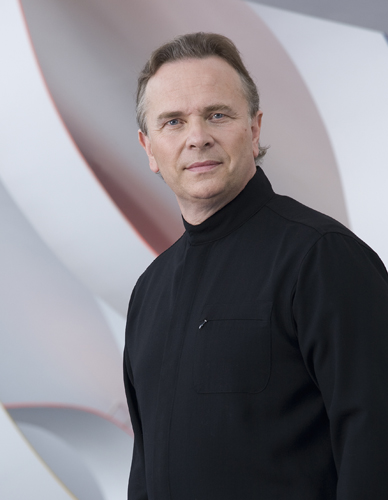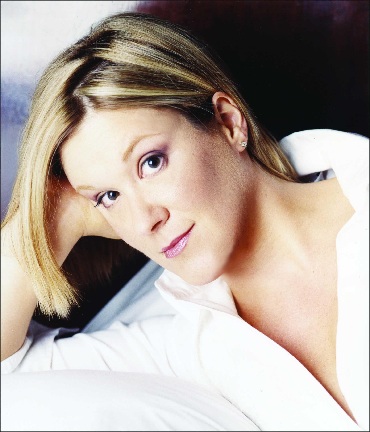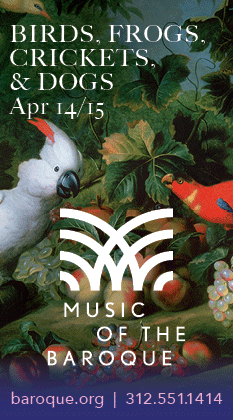Elder and CSO ignite in luminous Dvořák and fiery Shostakovich

The Chicago Symphony Orchestra has the luxury of enjoying regular visits from some of the world’s finest guest conductors.
Yet no annual podium visitor seems to strike as consistent sparks with the CSO as does Sir Mark Elder. In addition to bringing some of the orchestra’s most creative programs, Elder seems to inspire the musicians to a level of commitment and intensity that few others can do, apart from Riccardo Muti.
All three composers represented on Thursday night’s program are Elder specialties. The English conductor’s full-tilt commitment and his ability to explore the unique sound world of each work drew outstanding playing from the orchestra in one of the CSO’s finest programs of the year.
Dvořák’s final orchestral works consisted of four large-scale tone poems written to a series of macabre folk tales by his fellow Czech, writer Karel Jaromir Erben. The third and best of Dvořák’s set, The Golden Spinning Wheel is set to the grisliest story of all. A king on horseback meets and falls instantly in love with Dornicka, a young girl he meets at her spinning wheel. Her evil stepmother, unfortunately, is jealous, having an unmarried daughter of her own. She kill Dornicka and dismembers the girl, substituting her own daughter in her place (unsuspected by the clearly obtuse king). Ultimately, and improbably, the girl is somehow reconstituted with parts of the spinning wheel and magically brought back to life.
The frolicsome scenario apart, The Golden Spinning Wheel is Dvořák’s last masterpiece, crafted with thematic elements assigned to each character, chock full of a bewildering profusion of melodic riches and surely constructed in a work running nearly thirty minutes. Theodore Thomas gave the U.S. premiere of The Golden Spinning Wheel with the CSO in 1897, less than a year after it was first unveiled in Prague.
As shown by the Dvořák Festival Elder helmed with the CSO in 2009, the conductor is almost without peer in this repertoire, and brought innate understanding to this beautiful yet extremely challenging score. The king’s opening march-like theme went with jaunty vigor and the innocent Dornicka’s touching theme was rendered with beguiling tenderness by concertmaster Robert Chen and English hornist Scott Hostetler.
Elder drew out the dramatic power of the latter sections with taut and concentrated strength as much as he allowed the lyricism to bloom expansively. This Dvořák performance offered some of the most luminous CSO playing of the season in all departments, with special kudos to the sepulchral trombones led by Jay Friedman. The sound was aided by Elder’s preferred configuration of the orchestra, which seems to provide the most successful balance in Symphony Center’s problematic acoustic (violins split left and right, cellos inside left with basses behind, violas inside right).
It was a brilliant idea of Elder to pair this late Dvořák tone poem with Shostakovich’s Symphony No. 1, the work that launched his career.
It’s striking how much of Shostakovich’s musical personality was already manifest when he wrote his First Symphony at age 19. In his insightful, user-friendly introduction, Elder posited that material for the first two movements may have come from Shostakovich’s experience playing piano in silent-movie houses in his teens.
It’s certainly plausible and the antic and satirical elements, loopy clarinet and piano solos, and abrupt gear-shifts could well have had their origins in some Keystone Cops-style slapstick early cinema. Yet in addition to the sardonic bite, the composer’s dark reflection is already manifest here in the brooding third movement and the inward sections that break up the hectic energy of the finale.
Elder led the CSO in a propulsive performance that put across the the brash dynamism and mercurial quirkiness of the score. The conductor also effectively underlined the extreme contrasts with cacophonous brass outbursts giving way to moments of stillness and bleak repose, and the final pages were delivered with daunting sonic blast and sonorous power.
The work is almost a concerto for orchestra and several individual players made the most of their moments in the spotlight. Especially notable were Eugene Izotov’s seamless long-limbed solo in the third movement, John Bruce Yeh’s personality-plus clarinet work, John Sharp’s burnished cello solo, and fine contributions by trumpeter Christopher Martin and concertmaster Chen.
The vocal recital is a dim memory in downtown Chicago, a far cry from a decade ago when one would hear three or more a season at Orchestra Hall.
Fortunately, the strength of the resilient art form, albeit in orchestral guise, was displayed in sterling fashion Thursday with the evening’s centerpiece, Alice Coote’s glowing performance of Berlioz’s song cycle, Les nuits d’ete.

Coote is a familiar figure in Chicago from her appearances at Lyric Opera, most recently in Handel’s Hercules last year. This week marks the English mezzo-soprano’s CSO debut, however, and one could hardly wish for a more inspired bow.
Berlioz’s six settings to poems by Theophile Gautier are centered on longing and romantic angst. From the capricious charm of the opening Villanelle, Coote’s refined mezzo and impeccable French diction showed complete sympathy with this evocative and impassioned music.
She assayed the haunting melancholy of Le spectre de la rose with extraordinary inward delicacy, the coda breathing an air of otherworldly peace. Sur les lagunes was duly dramatic, followed by a quite gorgeous rendering of Absence. Coote rounded off the cycle with a vital and energetic account of the extrovert sea-faring L’ile inconnue.
Coote’s sensitive and idiomatic rendering of these lovely songs was a highlight of the CSO season, and the accompaniment of Elder and the orchestra was as nuanced, elegant and subtly hued as the singer’s vocalism.
The program will be repeated 1:30 p.m. Friday and 8 p.m. Saturday. cso.org; 312-294-3000.
Posted in Performances




